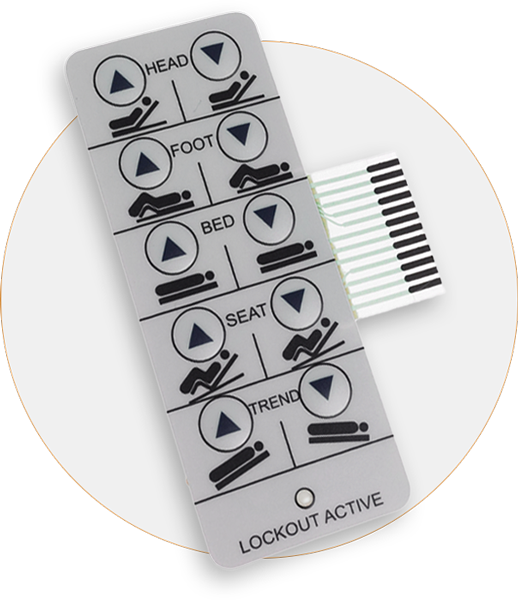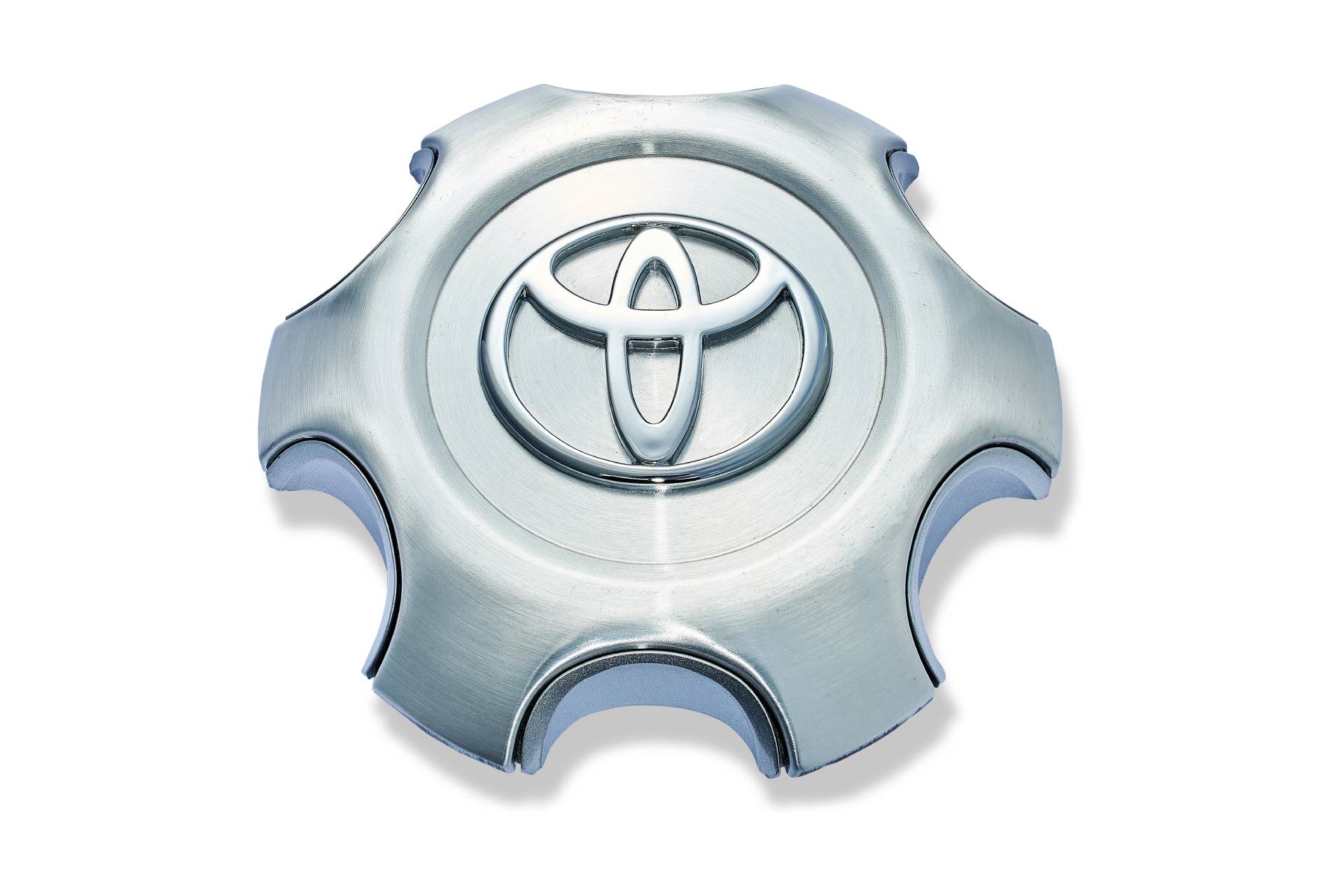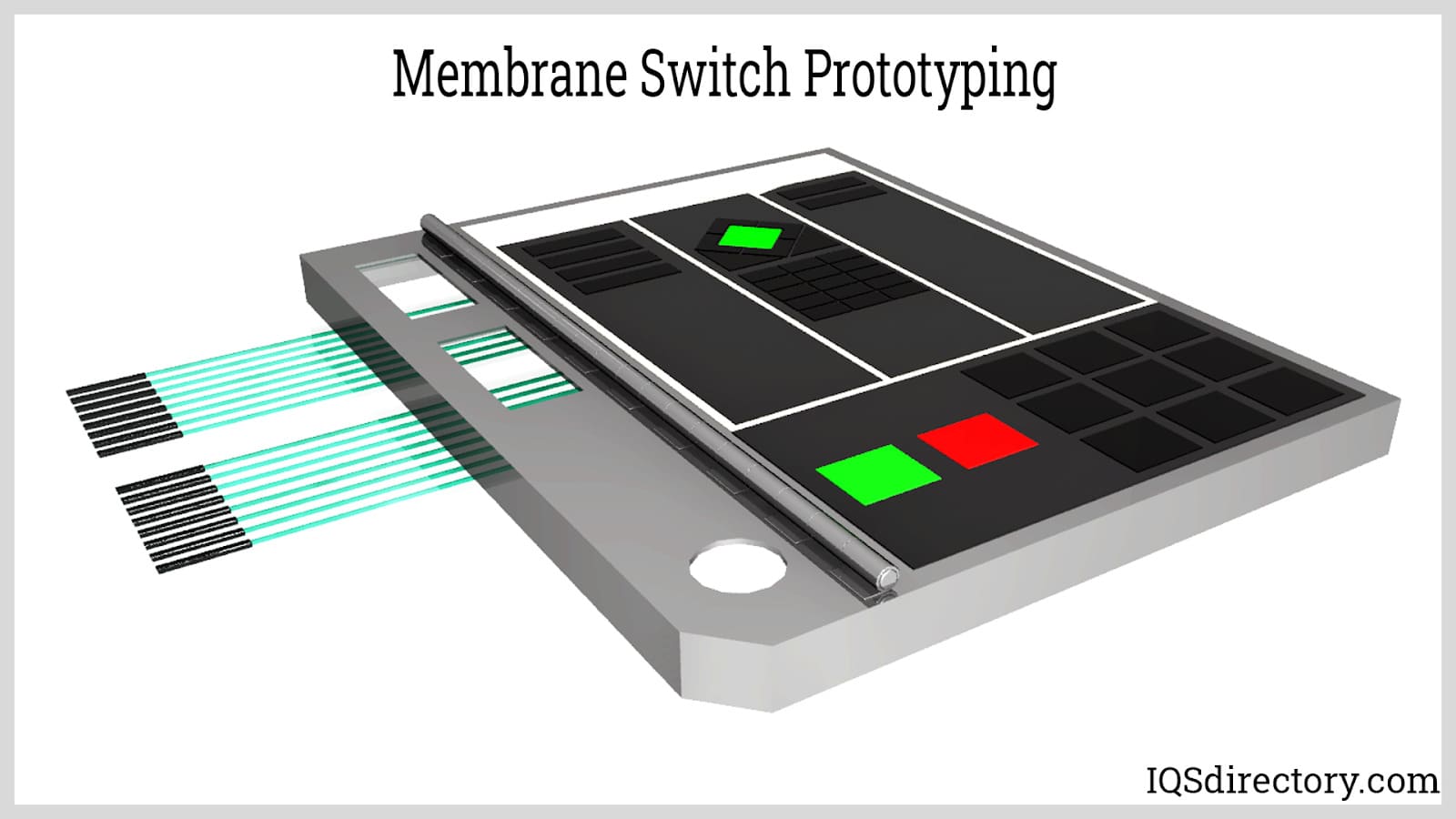Collaborating with an experienced membrane switch manufacturer enhances your manufacturing process.
Collaborating with an experienced membrane switch manufacturer enhances your manufacturing process.
Blog Article
Everything About Membrane Change: Comprehending Its Style and Functionality
When you assume about the control interfaces in modern devices, membrane layer buttons usually come to mind. Allow's discover what sets membrane switches apart from various other control systems.
What Are Membrane Buttons?

Membrane layer buttons can also be customized relating to form, size, and graphics, enabling producers to create special user interfaces customized to details items. Overall, membrane buttons play a considerable duty in enhancing user experience throughout a broad selection of applications.
Just How Membrane Changes Job
When you push a key on a membrane switch, it turns on a simple yet efficient system. The leading layer, frequently made of versatile product, pushes down onto a conductive layer beneath it. This action bridges the gap in between conductive traces, finishing an electrical circuit. As soon as the circuit shuts, it sends out a signal to the gadget's controller, which translates your input.
You'll notice that the responsive feedback differs based upon the switch layout, supplying either a soft click or an extra obvious response. As soon as you release the secret, the membrane layer go back to its initial setting, resuming the circuit and stopping the signal. This procedure happens nearly instantly, making certain a receptive user experience.
Membrane buttons are prominent as a result of their sturdiness and resistance to dirt and wetness, making them optimal for different applications, from household appliances to medical tools. Recognizing this procedure aids you appreciate their prevalent usage.
Secret Components of Membrane Layer Buttons
Comprehending the crucial parts of membrane layer buttons is fundamental for realizing their capability and design. The safety layer guards versus ecological variables and put on, extending the switch's lifespan. By comprehending these parts, you'll obtain understanding right into just how membrane layer changes operate and their relevance in numerous applications.
Materials Used in Membrane Layer Change Style
The performance and toughness of membrane switches greatly rely on the materials made use of in their style. You typically come across polyester and polycarbonate as key substratums due to their superb stamina and flexibility. These products stand up to scrapes and chemicals, making them ideal for requiring settings.
The conductive layers often use silver or carbon, selected for their reliability and conductivity. membrane switch manufacturer. Silver provides exceptional performance, while carbon is an affordable option. For the overlay, you might take into consideration a matte or glossy coating, relying on your aesthetic needs and user experience
Adhesives play a vital function also; they bond layers firmly and ensure durability. Make sure to choose adhesives that withstand ecological elements like temperature and humidity. Do not forget the value of a great printing method for graphics, as it enhances both performance and aesthetic allure. Choosing the right products will certainly ensure your membrane switch stands the test of time.
Style Considerations for Membrane Layer Switches
While making membrane switches, it's essential to take right into account various elements that affect their functionality and user experience. Beginning by focusing on the design and switch dimension; make specific they're intuitive and easy to navigate. Take into consideration the tactile feedback you intend to offer-- will customers need a visible click or a softer touch? In addition, think of the products you'll utilize, as they'll impact resilience and aesthetics.
Do not overlook the graphic design; clear labeling and shade comparison are significant for visibility. Verify your layout accommodates ecological factors, like wetness or temperature level variants, which could impact efficiency. Remember the significance of screening prototypes with genuine individuals to collect comments and make necessary changes. This iterative process assists you fine-tune the layout, validating it satisfies both useful and visual needs effectively. By thoroughly thinking about these components, you'll develop a membrane layer button that boosts functionality and contentment.
Applications of Membrane Layer Buttons
Membrane layer switches are flexible parts discovered in different applications, from commercial devices to customer electronics. You'll see their impact in devices that need long lasting interfaces and in devices that gain from sleek designs. Recognizing these applications assists you value the capability and practicality of membrane buttons in everyday innovation.
Industrial Tools Use
When you're looking to improve the functionality of industrial equipment, membrane layer switches offer a trustworthy service that combines toughness with easy to use style. These buttons are best for rough settings, giving resistance to dust, wetness, and click this site chemicals. Welcome membrane layer switches to enhance your procedures and enhance total performance.
Consumer Electronic Devices Assimilation
In the domain name of customer electronic devices, membrane layer buttons play a necessary duty in boosting customer communication and device capability. You'll find them in devices like microwaves, remotes, and pc gaming consoles, offering a smooth method to interact with modern technology. Their smooth style enables for simple assimilation into different products, making controls intuitive and easy to use. With their capacity to incorporate graphics and backlighting, you can enjoy a modern-day aesthetic that matches the device's general appearance. Membrane buttons additionally guarantee resilience and resistance to dust and wetness, prolonging the life-span of your electronics. By selecting membrane switches, you enhance not just the capability however likewise the style of your gadgets, making day-to-day interactions smooth and delightful.
Benefits and Negative Aspects of Membrane Switches
While membrane layer buttons offer a range of advantages, they likewise come with some drawbacks that you must consider. One substantial benefit is their compact layout, making them perfect for space-constrained applications.

Nevertheless, there are negative Look At This aspects. Membrane buttons can have a shorter life expectancy contrasted to mechanical switches, specifically under hefty usage. They can also be much less responsive, which might affect individual responses during procedure. In addition, if damaged, fixing them can be difficult and typically calls for full replacement. Ultimately, their level of sensitivity to severe temperatures and environmental problems may restrict their efficiency in specific settings. Stabilizing these advantages and disadvantages will aid you figure out if membrane layer switches are the right fit for your project.
Often Asked Concerns
For How Long Do Membrane Changes Normally Last?
Membrane switches usually last in between 5 to 10 years, depending on usage and ecological problems. You'll wish to evaluate factors like wear, direct exposure to wetness, and temperature fluctuations to assess their longevity effectively.
Can Membrane Layer Switches Over Be Personalized for Specific Layouts?
Yes, you can customize membrane layer switches to fit particular designs (membrane switch manufacturer). You'll have the flexibility to pick shades, shapes, and formats that match your job's requirements, ensuring they mix flawlessly with your general aesthetic
What Is the Price Variety for Membrane Layer Change Production?
The price array for membrane layer button manufacturing generally drops in between $1 and $10 each, depending upon variables like style intricacy, amount, and products. You can get quotes from manufacturers to locate the best alternative.

Are Membrane Layer Switches Over Water Resistant or Resistant?
Membrane buttons can be designed to be water resistant or resistant, depending upon materials made use of and building techniques. If you need them for damp settings, assure you define those needs during the style procedure.
Exactly How Do Membrane Layer Switches Compare to Traditional Switches?
Membrane switches are normally thinner and more versatile than traditional buttons, offering a smooth design. They're frequently simpler to clean up and integrate, but may not give the tactile responses you're used to with mechanical alternatives.
Conclusion

Report this page